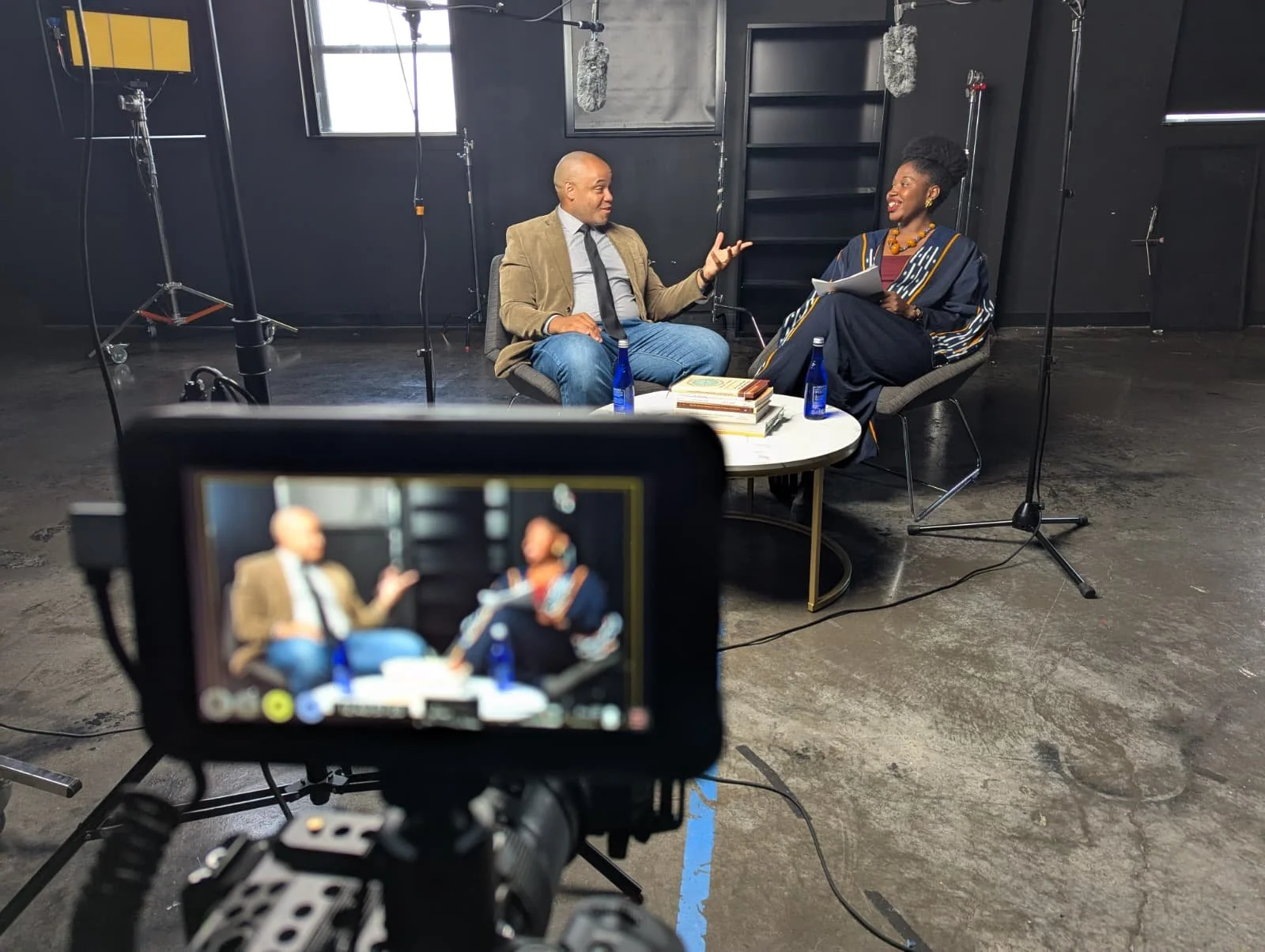
Media
-
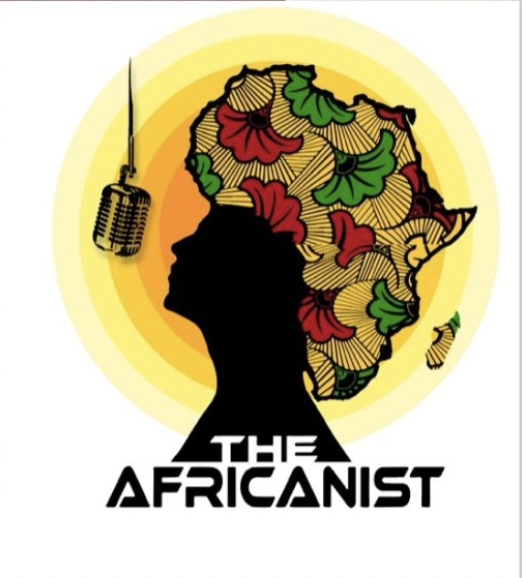
The Africanist Podcast, Nov. 14, 2025
Recorded with Bamba Ndiaye for The Africanist Podcast, the episode centers on Textual Life: Islam, Africa, and the Fate of the Humanities and the figure of Shaykh Musa Kamara, the Senegalese Muslim polymath whose writings anchor the book. Beginning with Kamara’s monumental History of the Blacks and its composition under colonial rule, the discussion traces how African Islamic scholarship intervened in—and was reshaped by—changing regimes of knowledge and power. We reflect on Kamara’s thwarted efforts to publish a bilingual Arabic–French edition of his work, the colonial shift from philological reading to surveillance ethnography, and the afterlives of his texts in postcolonial Senegal. Along the way, I argue for reading Islam in Africa as a tradition of study and textual engagement, and for understanding the humanities as an orientation toward the world. The episode closes with reflections on intellectual apprenticeship, persistence, and the enduring possibility of return to the text.
-
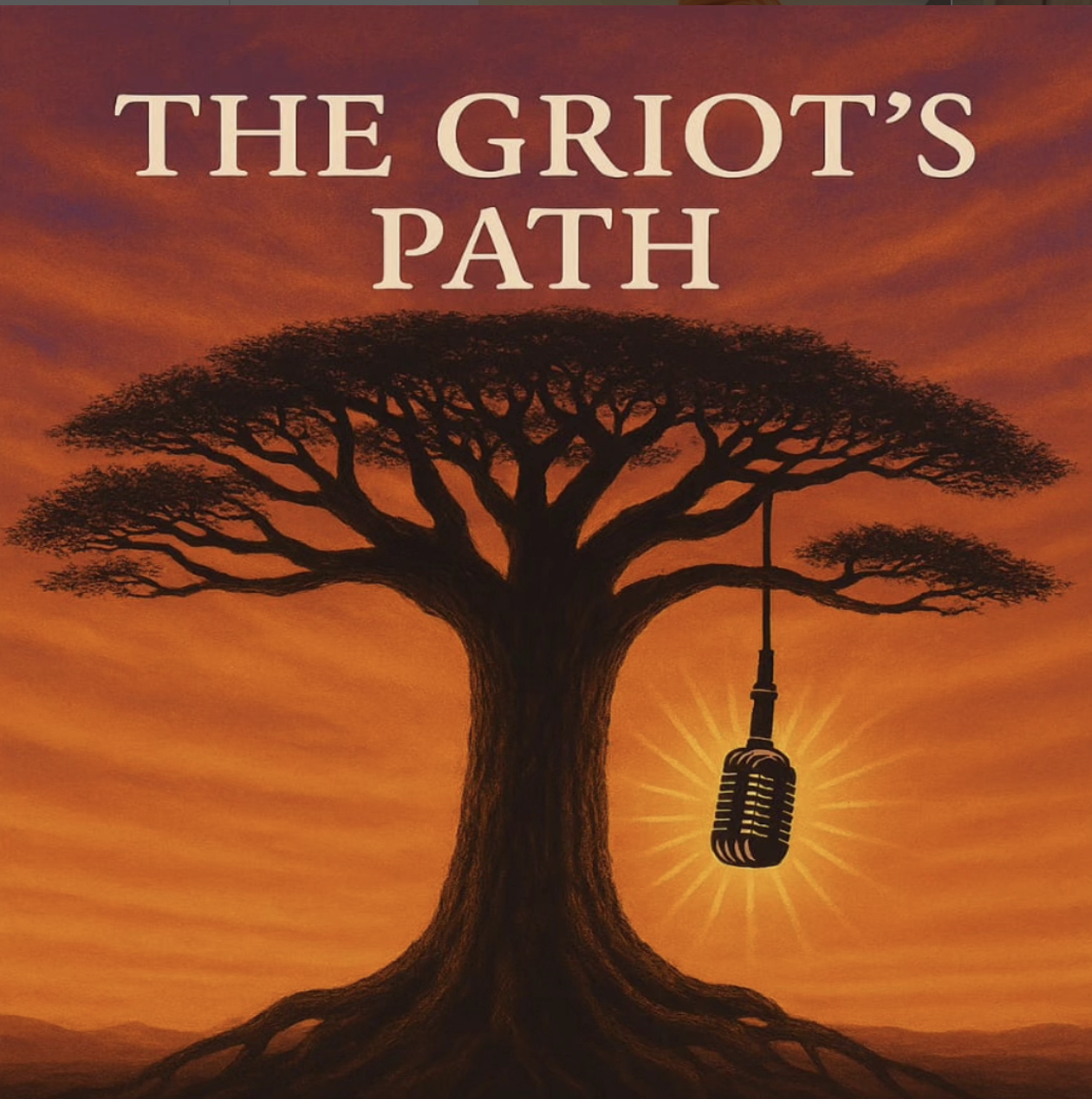
The Griot’s Path, Oct. 28, 2025 (Originally recorded July 9, 2025)
In this episode of The Griot’s Path with Ciku Kimeria, I reflect on the legacy of Shaykh Musa Kamara—the Senegalese scholar at the heart of Textual Life: Islam, Africa, and the Fate of the Humanities—through the figure of the griot and the work of those who guard memory. Beginning with my father’s encounter with Islam as a study of knowledge and my own first visit to Medina Baye Kaolack, the conversation traces how curiosity, inheritance, and storytelling converge in the making of Black intellectual life. We discuss Kamara’s monumental Flowers in the Gardens in the History of the Blacks, the fate of his lost manuscripts, and the task of those who keep tradition alive amid erasure. From colonial archives to family proverbs, I argue that the griot’s path—the work of preserving, interpreting, and renewing what we inherit—remains essential to the humanities today.
-

Sawahil Substack, Oct. 17, 2025
In this written conversation with Alex Thurston for Sawahil, we discuss the heart of my book, Textual Life: Islam, Africa, and the Fate of the Humanities. We explore what the encounter between Sufi Islam and colonial modernity reveals about the politics of knowledge; how thinkers like Hajj Umar Tal transformed the intellectual landscape of West Africa and how Shaykh Musa Kamara responded to it through study, critique, and writing; and what their “textual lives” might teach us about the fragile but enduring work of reading and interpretation today. I came away from Alex’s questions feeling that this may be the most concise summary of the book yet—a conversation that moves from the Sahel to the seminar room, from the 19th century to the fate of the humanities in our own time.
-

Conversations in Atlantic Theory, Oct. 14, 2025
In this conversation with Fatima Seck for Conversations in Atlantic Theory, I trace the personal and intellectual journeys that shaped Textual Life: Islam, Africa, and the Fate of the Humanities. I begin with my father’s story—how an encounter with Arabic letters in 1960s Atlanta awakened a lifelong curiosity about study—and move to my own discovery of Shaykh Musa Kamara, whose writings anchor the book. We talk about what I call the “textual attitude,” a love of reading that resists the instrumentalism of the “practical attitude” and opens interpretation as a collective human impulse. From colonial philology to surveillance ethnography, from dreams to digital texts, I argue that so long as people read and interpret, there remains hope for the humanities.
-

New Books Network, Sept. 22, 2025
I recently joined historian Madina Thiam on the African Studies Channel of the New Books Network to talk about my forthcoming book, Textual Life: Islam, Africa, and the Fate of the Humanities (Columbia University Press, October 2025). Our conversation moves between scholarship and story: from my own path into Africana Studies to the life and work of Shaykh Musa Kamara, the Senegalese Muslim scholar at the heart of the book. We discussed Kamara’s extraordinary efforts to write and publish amid French colonial rule, what philology means as a love of study, and how these questions shape my approach to teaching and thinking about the humanities today.
-

The Black Studies Podcast, Sept. 6, 2025
In this conversation on the Black Studies Podcast, I reflect on how I came to Black Studies and why I describe my scholarly practice as philology—the love of study. I move from family origins and early organizing to study abroad in Paris and Dakar, where language learning opened a global Black intellectual world. I discuss my work on Shaykh Musa Kamara and reading West African Islamic texts on their own terms under colonial rule. I sketch a field “concept map” (humanism, Afrocentrism, Black feminism, racial capitalism, Afro-pessimism), frame translation as relation, and argue for a rigorous, multilingual global Black Studies. I close with a call to build autonomous spaces—tied to abolition and decolonization—for the crises ahead.
-
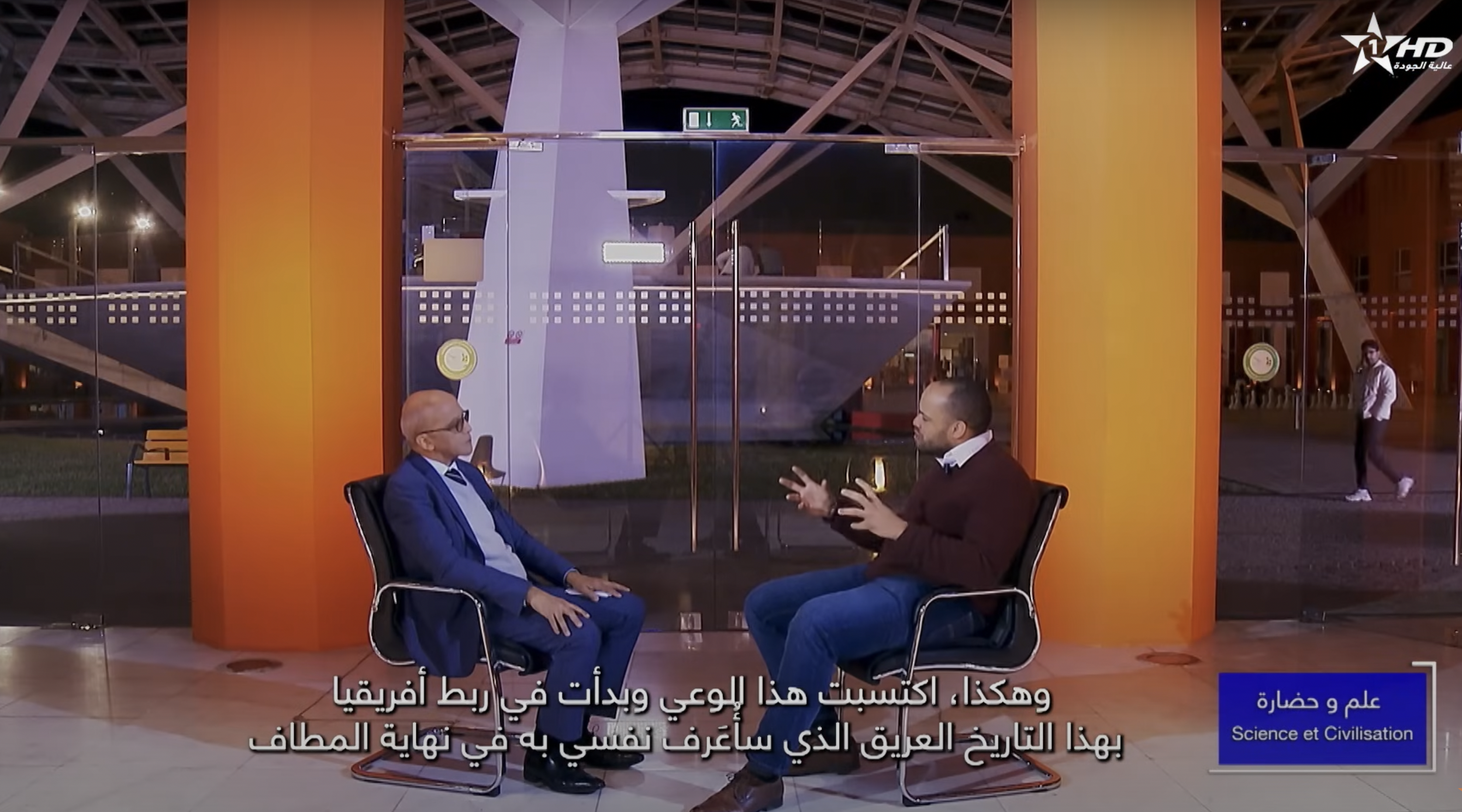
"Science and Civilization" / "علم وحضارة"
In a televised conversation with philosopher Ali Benmakhlouf on Al Aoula TV, I reflected on the intellectual traditions of Africa and the transformative possibilities of the African humanities. Together, we explored questions of ethics, comparative religion, and decolonial thought, emphasizing the need to reframe global knowledge production through African philosophical and literary legacies. The dialogue highlighted shared commitments to interdisciplinary inquiry and institutional collaboration, offering a vision for how African and diasporic perspectives can reshape the future of the humanities on the world stage.
-

Space at the Center with Leah Barlow
In this episode of Space at the Center, I joined host Leah Barlow to discuss my forthcoming book, Textual Life: Islam, Africa, and the Fate of the Humanities. We explored the life and work of Shaykh Musa Kamara, a Senegalese Muslim scholar whose monumental historical writings complicate colonial narratives of African intellectual absence. I shared how Kamara’s struggle to publish his work during French colonial rule serves as a lens for thinking about the textual foundations of the humanities, the politics of knowledge, and the power of reading and rereading in a world increasingly dominated by algorithmic thinking. The conversation also reflected on my intellectual journey, the value of showing up as oneself in scholarly life, and the enduring necessity of the humanities as a space where interpretation, tradition, and study remain vital.
-
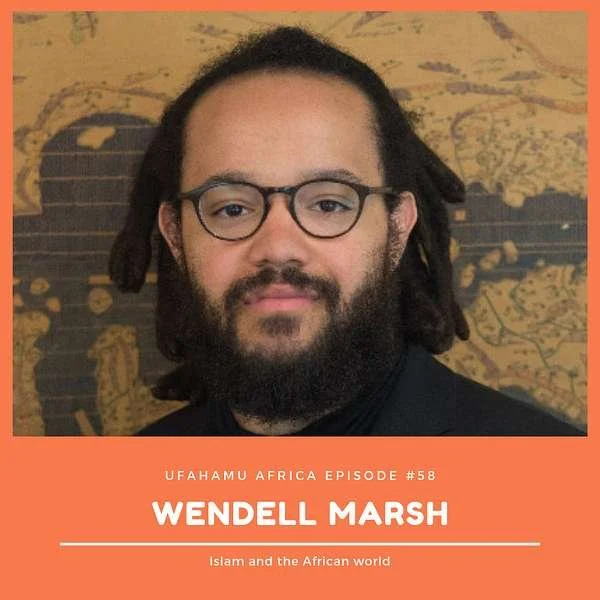
Ufahamu Africa
I joined host Rachel Beatty Riedl host of Ufahamu Africa to discuss the layered histories of Islam in Africa and the formation of African Islamic modernity. Drawing from my research on Arabic and vernacular textual traditions, I traced how African Muslim thinkers have negotiated global and local traditions of Islam in the aftermath of slavery and colonialism. We explored the intellectual and political dimensions of African Muslim scholarship, the role of language and textuality in shaping identity and resistance, and the continued relevance of Islamic thought in contemporary African life. The conversation, released during Black History Month, also reflected on the broader stakes of Black intellectual life and the humanities in a global frame.
-
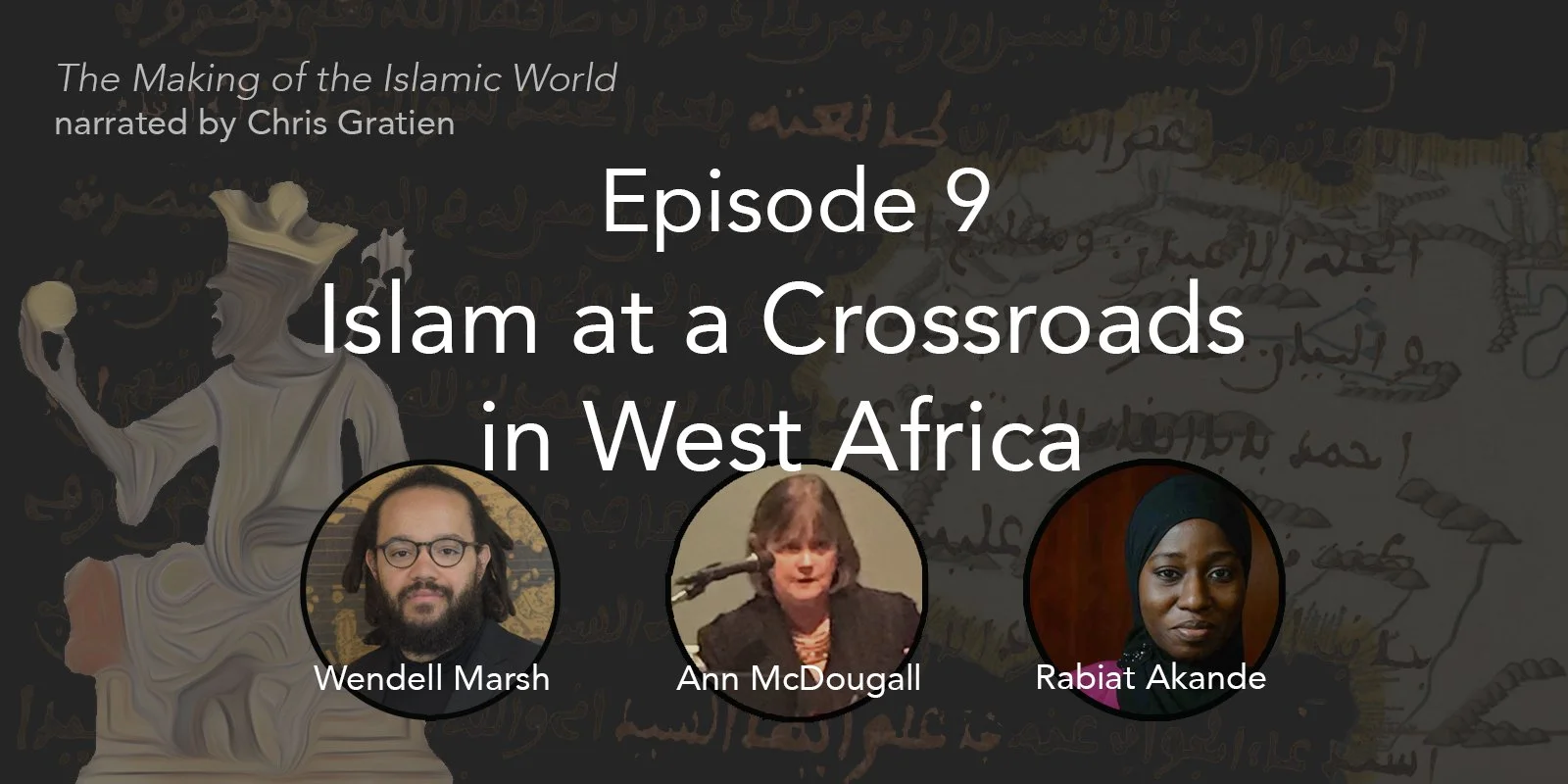
Ottoman History Podcast
In the episode “Islam at a Crossroads in West Africa”(Episode No. 488 of The Making of the Islamic World series on the Ottoman History Podcast hosted and produced by Chris Gratien), I, along with Ann McDougall and Rabiat Akande, explored how Islamic civilization took root and flourished across West Africa from the 10th century onward. We examined the rise of early Islamic polities—particularly in Ghana, Mali, and Songhay—born of trans-Saharan trade and enriched by centers of Arabic learning. The discussion foregrounded the region’s unique engagement with the Maliki legal tradition and its entanglement in the global slave trade, highlighting how African Islamic jurisprudence engaged complex social realities while challenging narratives of intellectual absence. Together, we reframed West Africa not as a peripheral zone of Islam but as a vital node in the broader Islamic world, rooted in textual traditions, scholarly networks, and meaningful engagement with global flows of trade and ideas.